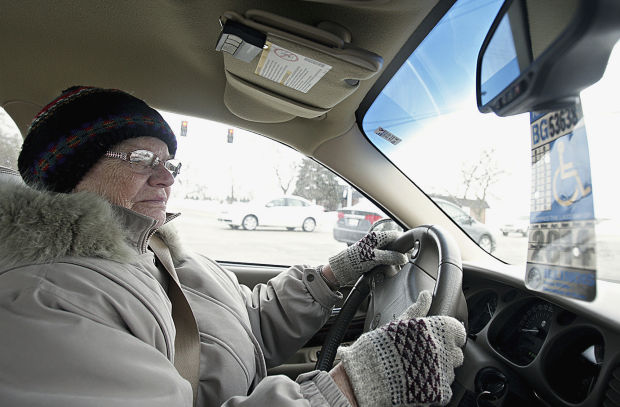Crash Restarts Conversation On Aging Drivers
March 9, 2014 – Justin Runquist
Gage W. Musgrave, 84, sat dazed and trapped in his wrecked Toyota Avalon on Interstate 5 for more than 30 minutes before emergency responders could pry him free.
It was the afternoon of Feb. 28, and Musgrave, a Vancouver resident, had just driven at least a mile in the wrong direction of the northbound lanes before crashing into a gray sedan.
The crash killed a 6-year-old La Center boy. Musgrave emerged with a head injury and showed signs of confusion, said Trooper Will Finn with the Washington State Patrol.
Was Musgrave’s confusion a consequence of the head trauma or a sign of his mental state leading up to the crash? Detectives aren’t yet sure.
“At the time of the collision, obviously we were dealing with a very traumatic situation, along with someone who is 84 years old,” Finn said.
Investigators do say drugs and alcohol weren’t a factor in the collision. But they’re considering whether declining driving skills associated with the aging process could be at the root of the crash.
If age is determined to be a factor, Musgrave wouldn’t be alone, according to a number of national studies of collisions.
A study by the Insurance Institute for Highway Safety shows a dramatic spike in fatal collision rates for drivers 70 and older, with rates peaking for drivers in their mid-80s or older. A 2012 report by the National Transportation Safety Board (NTSB) reveals that most fatal wrong-way crashes involve drivers between the ages of 20 and 50 who were under the influence of alcohol, though it also confirms the higher deadly crash rates for older drivers.
The NTSB report — based on an analysis of six years of fatal-collision data — also shows a growing number of older drivers throughout the country as advancements in medicine and automobile safety enable them to drive later into life than ever before.
“In 2009, about 84 percent of the population over the age of 70 had a driver’s license,” the report states.
“This compares to 74 percent of those age 70 and older who had licenses in 2000, and 66 percent in 1990.”
Quitting driving
The trends have sounded an alarm about the future of road safety for those who study and work with older drivers. But regardless of whether aging played a role in Musgrave’s crash, stories like his offer a chance for concerned family members and friends of older drivers to approach their loved ones about putting down the keys, said Jodi Olshevski, the executive director of The Hartford’s Center for Mature Market Excellence, a research group funded by The Hartford insurance company.
“You might have to have several conversations with that person,” Olshevski said. “And we suggest that you’re really thoughtful before you have that conversation in order to create an environment that is supportive for the older person.”
Olshevski and a team of gerontologists at The Hartford have spent the past 15 years studying trends among older drivers. In their observations, age alone doesn’t appear to be a reliable indicator of declining driving ability, she said.
“Oftentimes if a person is older and having difficulty driving, it’s often because of an underlying health condition,” Olshevski said.
If a family member is concerned about an older relative’s driving, it’s important to get in the passenger seat and take note of potentially dangerous habits over time, Olshevski said.
Mike Reardon, a community services manager at the Southwest Washington Agency on Aging and Disabilities, went through that experience several years ago. His mother began to show signs of dementia in her early 70s. A neurologist suggested she stop driving after she ran two red lights on separate occasions. First, she crashed into a building; in the second accident she got clipped on the back bumper by another car.
In some ways, older drivers represent a much safer group on the road, Reardon said. They tend to drive slower and avoid nighttime driving, and they have far more experience and fewer distractions than younger drivers, he said.
Reardon cautions people to watch for clues of declining physical and cognitive health in their older friends and relatives. The signs vary from person to person, but they generally include a loss of strength and flexibility and a noticeably slower ability to process information.
The agency offers a number of resources to help people work with older drivers. Of course, giving up driving is never easy, he said.
“Driving is something we looked forward to since we were teenagers and is our primary source of independence,” Reardon said. “Being able to get in the car and go where you want, when you want, is something we do for the majority of our life.”
Source: The Columbian



